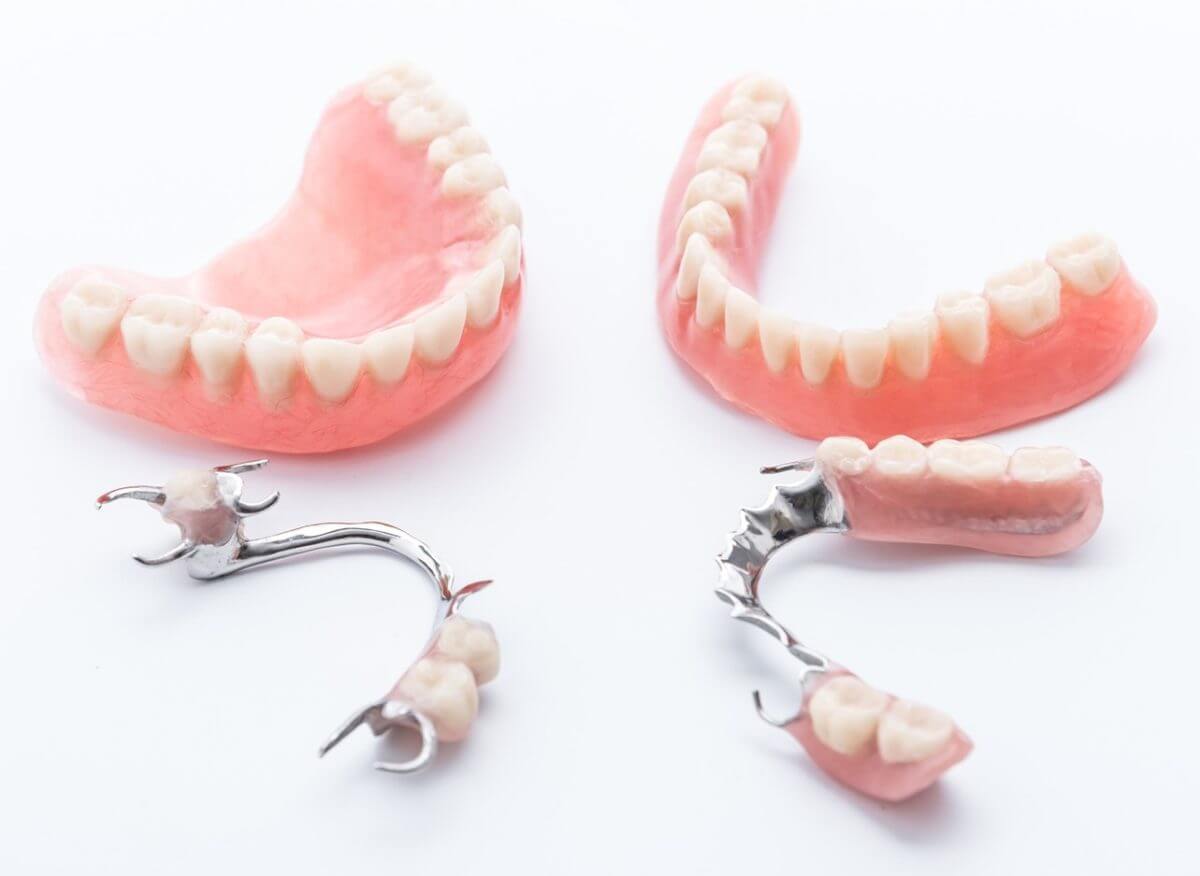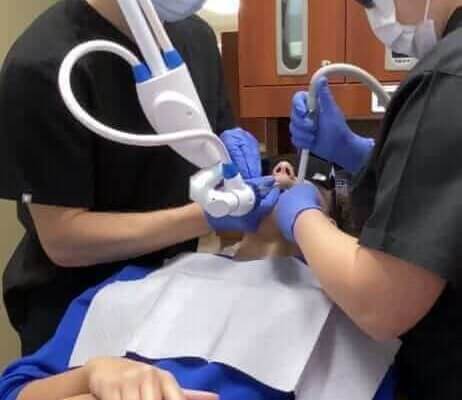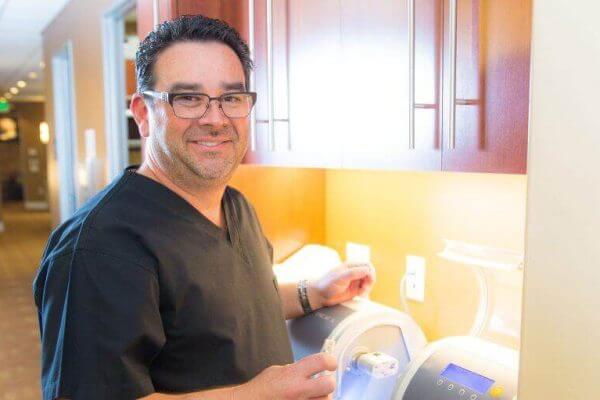Addressing Unique Senior Dental Needs at Lakefront Family Dentistry
As we age, maintaining oral health becomes more crucial, yet it can potentially become increasingly challenging. At Lakefront Family Dentistry, we understand senior citizens have unique dental needs that require specialized care.
With over 30 years of experience in serving the Southern California community, our practice is dedicated to ensuring that our elderly patients receive the most appropriate and compassionate dental care.

The Impact of Aging on Oral Health
Aging affects all parts of the body, including the mouth and teeth. Common changes in oral health as we age include:
Dry Mouth: Often caused by medications and decreased salivary gland function, dry mouth can significantly increase the risk of tooth decay and gum disease.
Wear and Tear: Years of chewing and grinding can wear down the enamel, making teeth more susceptible to decay.
Gum Recession: This can expose the roots of teeth, making them more vulnerable to decay and sensitivity.
Tooth Loss: Despite improvements in dental care, many older adults lose teeth, which can affect their nutrition, self-esteem, and general well-being.
Common Dental Problems in Seniors
Several dental issues are more prevalent in older adults:
1. Dry Mouth (Xerostomia)
– Causes include medication side effects, systemic diseases such as diabetes, and changes in physiological functioning.
– Management involves staying hydrated, using saliva substitutes, and possibly changing medications under the guidance of a healthcare provider.
2. Gum Disease
– Often progresses silently and can lead to tooth loss if untreated.
– Regular dental cleanings and good oral hygiene are crucial for prevention.
– Seniors are at increased risk due to exposed root surfaces and difficulties in maintaining oral hygiene.
– Fluoride treatments and more frequent dental check-ups can help manage this risk.
4. Oral Cancer
– Risk increases with age.
– Lakefront Family Dentistry offers screenings for oral cancer during regular check-ups, crucial for early detection and treatment.

Dental Care Best Practices for Seniors
To address the specific challenges faced by elderly patients, we recommend the following best practices:
Enhanced Oral Hygiene: Gentle, thorough brushing of teeth and gums at least twice a day with a soft-bristled brush and fluoride toothpaste. For those with arthritis or other conditions that impair movement, electric toothbrushes can be easier to use.
Regular Dental Visits: Seniors should visit the dentist at least twice a year for exams and cleanings. These visits allow for the early detection and treatment of problems such as gum disease and decay.
Tailored Restorative Care: For those with missing teeth, options like dentures, bridges, or dental implants can restore functionality and appearance. Lakefront Family Dentistry utilizes advanced CEREC technology to create precise and durable restorations.
Role of Technology in Senior Dental Care
At Lakefront Family Dentistry, we employ the latest dental technologies to enhance the care we provide to our senior patients:
Digital X-Rays and SIRONA ORTHOPHOS XG 3D Imaging: We use the latest dental technology in our office that allows for detailed imaging of the mouth with less radiation exposure, which is especially important for senior health.
CEREC for Same-Day Restorations: Reduces the need for multiple visits, minimizing stress for seniors who may have mobility issues or health concerns that make frequent trips to the dentist difficult.
Dentures and Partial Dentures for Seniors
For seniors facing tooth loss, Lakefront Family Dentistry offers customized denture services.
Full Dentures
Full Dentures: For those who have lost all of their teeth, full dentures can restore functionality and appearance, enhancing the ability to eat and speak comfortably, as well as improving self-esteem.
Full dentures, often simply referred to as dentures, are removable prosthetic devices designed to replace all of a patient’s teeth on the upper or lower jaw, or both. They are typically used when a patient has lost most or all of their natural teeth, whether from gum disease, tooth decay, or injury. Full dentures not only restore the appearance of a healthy and complete smile but also provide the necessary support for everyday functions such as eating and speaking.

How Full Dentures Are Made
- Impression: The process begins with Dr. Derek Hauser or Dr. Mark Phillipe taking a precise impression of the patient’s gums, ensuring the denture will fit comfortably and securely.
- Design: Using the impressions, a dental technician designs the dentures to mimic the natural appearance of gum tissue and teeth. This stage involves choosing the right shape, size, and color of the prosthetic teeth to match the patient’s facial structure and desired appearance.
- Trial Fitting: Before the final denture is created, a trial version is made from the initial design. This trial denture allows our dentists and patients to make any necessary adjustments to the fit and appearance.
- Fabrication: Once the fit and aesthetics are approved, the final denture is fabricated using durable materials designed to withstand the forces of chewing and to last for many years with proper care.
- Final Adjustment: After the patient begins wearing the denture, additional adjustments may be necessary to ensure maximum comfort and function.
Benefits of Full Dentures
- Functional Benefits: Restores the ability to chew, which improves digestion and overall nutrition.
- Aesthetic Benefits: Provides a natural-looking smile, enhancing the patient’s facial aesthetics and boosting self-esteem.
- Speech Improvement: Helps in articulating words more clearly, which can often be a challenge after losing teeth.

Partial Dentures
Partial Dentures: For seniors missing one or several teeth, partial dentures are an excellent solution. They fill in the gaps, help maintain the alignment of remaining teeth and are designed to be comfortable and aesthetically pleasing.
Partial dentures are used when one or more natural teeth remain in the upper or lower jaw. They are an ideal option for filling the spaces created by missing teeth and preventing other teeth from changing position, which could lead to occlusion (bite) problems.
How Partial Dentures Are Made
- Impression and Design: Like full dentures, the process begins with dental impressions. The design of partial dentures, however, must also include a way to anchor the denture to the remaining teeth.
- Framework: Partial dentures typically have a metal framework that attaches to the natural teeth with clasps for stability and support. More modern options can include more aesthetic, gum-colored clasps or precision attachments that are less visible.
- Trial and Adjustment: As with full dentures, a trial fitting is crucial to ensure comfort and functionality before the final partial denture is completed.
- Fabrication: Once the fit is perfected and the aesthetics are approved, the final partial denture is created with the same attention to durability and natural appearance.
Benefits of Partial Dentures
- Preventing Misalignment: Helps to keep the remaining teeth correctly aligned by filling the gaps left by missing teeth.
- Aesthetic and Functional Enhancement: Restores the functionality of the teeth and the aesthetics of the smile.
- Less Invasive: Offers a less invasive and more cost-effective alternative to other dental procedures such as bridges or implants.
Both types of dentures are custom-made using advanced technology to ensure a comfortable fit and a natural look.
Addressing Dental Anxiety and Cognitive Challenges
Many seniors may avoid the dentist due to anxiety or memories of painful experiences. Others may face cognitive impairments that make dental visits challenging.

At Lakefront Family Dentistry, we are trained to help manage these issues effectively:
Compassionate Communication: We ensure that our staff communicates clearly and patiently, taking the time to explain procedures and answer questions in a way that is reassuring and not overwhelming.
Accommodating Special Needs: We are equipped to handle patients with cognitive impairments and can modify our care approach to meet their needs, ensuring their comfort and safety.
Caring for the oral health of seniors requires an understanding of the unique challenges they face. Dr. Derek Hauser and Dr. Mark Phillipe are committed to providing our elderly patients with the personalized care they need to maintain their dental health and, by extension, their overall quality of life.
Request a Dental Appointment
If you or a loved one needs compassionate, specialized dental care tailored to the needs of seniors, contact Lakefront Family Dentistry today by calling (951) 244-9495 during business hours and make an appointment with Dr. Hauser or Dr. Phillipe. Let us help you achieve and maintain optimal oral health through your golden years.





